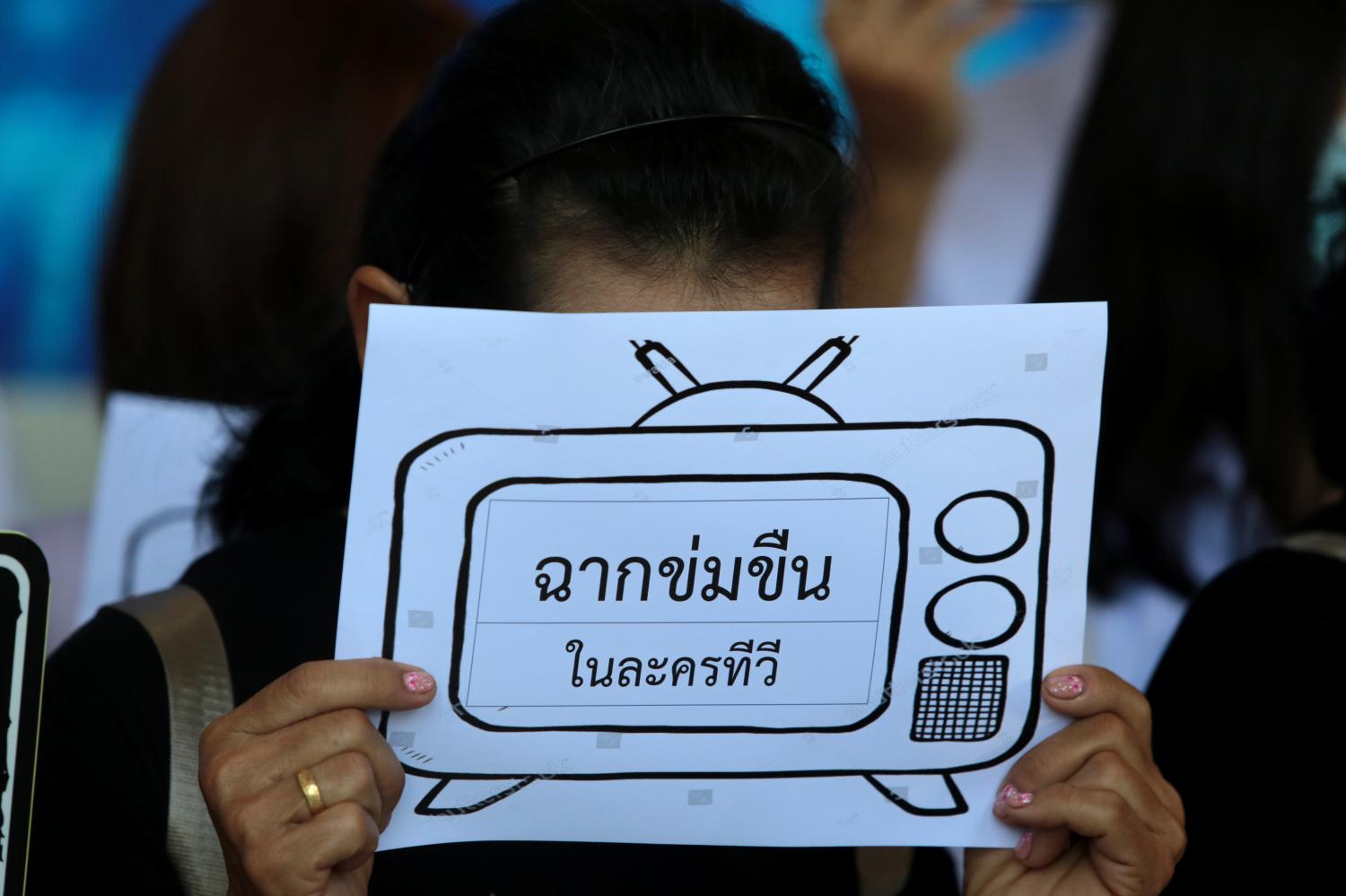
Fines do not stop TV producers from romanticising rape in soap operas but boycotts of products that generate vital advertising revenue might do the trick, says a women's rights group.
The National Broadcasting and Telecommunications Commission (NBTC) has warned it will enforce fines issued for producers who include rape scenes in TV series and soap operas.
However, Chanettee Tinnam, a lecturer with Chulalongkorn University's Faculty of Communication Arts, said the fines rarely work.
Ms Chanettee was speaking at a seminar called "Stop rape scenes on screen, stop repeating violence in society", held in Bangkok by the Women and Men's Progressive Movement Foundation (WMP), a pro-gender equality organisation.
Despite rising concerns over depiction of sexual violence on TV and maximum fines being imposed on producers flouting the law, the producers appeared undeterred as if motivated by rape scenes selling well, she said.
Some TV series producers also ignored reprimands issued against them by the Ministry of Social Development and Human Security, said Ms Chanettee.
Tackling the problem, she insisted, may involve hitting producers where it hurts the most: commercial sponsorship.
Producers are more afraid of losing adverts which keep them going and the firms whose products they are promoting care greatly that customers buy their products. This relationship may give the regulator its best chance of forcing TV producers to comply with regulations, said Ms Chanettee.
She suggested that a campaign be waged to to improve people's understanding about TV content that might be seen as condoning sexual assaults, especially if it is also watched by youngsters.
Young viewers will one day become adult consumers who need to be mindful of irresponsible acts by TV producers who damage society, she said.
Ms Chanettee said depicting rape as a reflection of the real world was acceptable but there was a very fine line between doing that and romanticising the assaults.
For example, TV series or soap operas must not portray rape as a pretext for the main male character to be drawn romantically to a leading actress and eventually forging a loving relationship between them.
"Rape is a crime, so it shouldn't be portrayed on TV as something acceptable," said Chari Sisawat of the WMP.
She said several popular TV series featuring romanticised rape with a happy ending had been aired in evening prime-time slots since 2007 and were still being rerun.
She urged the NBTC to also take action against these series being broadcast again. "Off screen, there never is a happy ending in a rape case," she said.
Rapes should also not be written into scripts as punishments for villainous female characters, Ms Chari added.
Certain TV series also contain scenes of female characters being chastised for the rape and even being blamed for it, she said, adding that such scenes had even discouraged rape victims from filing police compliants against their attackers.
Ms Chari said that out of 36 sexual violence cases the WMP had handled, only 14 made it as far as police prosecutions -- the rest opted for out-of-court settlements and even had to leave the areas they lived in to escape the stigma.
Some talk shows and game shows were also found to contain sexual harassment jokes and verbal violence against women, she said.
The law outlaws TV and radio stations from airing any content deemed immoral or a serious threat to public health, said Soemphong Charuloetwut, a member of the NBTC's sub-committee on radio and television broadcasting.
Chintana Chanbamrung, director-general of the Department of Women's Affairs and Family Development, said it had tasked a sub-committee with campaigning for gender equality.
It was also working with other organisations, including the NBTC, in monitoring all forms of media for acts that trampled on women's rights and gender equality, she said.
And to mark International Women's Day on Monday, the department called for better protection of women rights and gender equality.